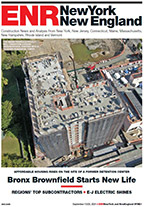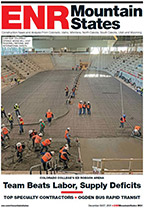Though leading indicators suggested its current training regimens were working, man-hours were soaring as Baker continued busting down regional barriers. Having acquired the breadth of expertise to excel in structural excavation and backfill, formwork and installation, reinforcement installation and placement and finishing, "We became known for taking on big, complex projects no one else wanted," says Schneider.
With its roster ranging from offices and manufacturing plants to powerplants, transportation projects and refineries, Baker, like Skanska, sought assistance from JMJ Associates, an Austin, Texas-based consultant specializing in worker safety. JMJ's client base consists of firms performing large-scale projects in the energy, mining and construction industries.
The effects were immediate: As Baker's man-hours climbed to more than 9.5 million in 2008 from nearly 6 million in 2006, its cost of claims per man-hour declined by 38%.
The program triangulated the issue of safety with those issues of quality and productivity (SQP).
"Safety is essential, but we're also in business to make a buck," says Schneider. "Our program basically addresses three questions: How do you promote safe, productive, quality work; how do you correct at-risk behavior in a dignified way; and how do you reinforce positive behavior in a positive way? If you can give nine atta' boys for every aw, crap, you're doing well."
The SQP program is executed and evaluated in accordance with quantifiable objectives, as outlined during morning huddles, which begin with stretch and flex routines. Foremen and crews then break down the day's tasks as each relates to objectives for quality and productivity. They also analyze safety hazards and the measures required to avoid them.
"Those sessions are intended to be dialogues, not monologues," says Schneider.
So that crews don't grow complacent, first-line supervisors lead weekly 15-minute tool box discussions that not only review recent injuries, but address upcoming work that requires special precautions.
To promote continuous improvement on all job sites, morning huddles are supplemented by weekly meetings among Baker's SQP committee, whose members cut across hierarchical lines, from craftsmen to foremen to project managers and supers. To ensure all voices register, employees serve on the committee for only a month, with 25% of the members changing each week.
Jobsites also fall under the purview of regional safety managers and are subject to periodic inspections by an internal safety task force to ensure operations are in full compliance with Baker's safety policies as well as regulations issued by OSHA and local entities.









Post a comment to this article
Report Abusive Comment